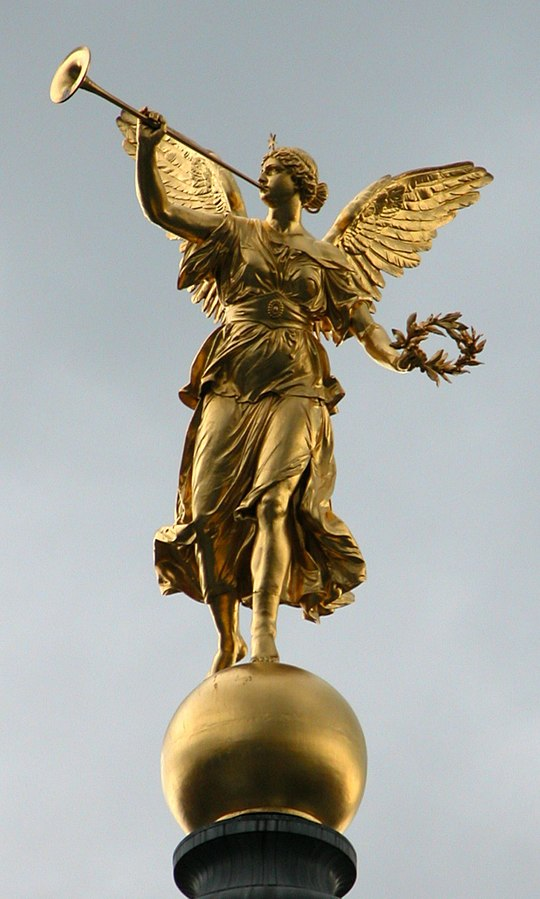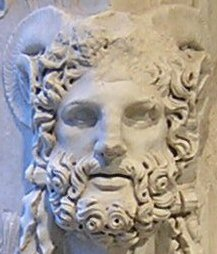5.1 Vergil, Aeneid, Book 4 Lines 160-218
7 min read•june 18, 2024
Jack Marso
Riya Patel
AP Latin 🏛
24 resourcesSee Units
Book IV: The Tragedy of Dido
Aeneas and Dido have fallen madly in love, and although Dido was previously married to Sychaeus, having been deceased, Anna, Dido’s sister, informs her to think about the present, not the past. As Dido shows Aeneas Carthage, Juno attempts to end the rivalry between herself and Venus when she announces that Dido and Aeneas will be wed after their day of hunting is concluded. Rumor of the prominent marriage will arise. Let’s find out how King Iarbas reacts.
Check out The Vergil, Aeneid, Book 4 Lines 160-218!
Before we dive into breaking down the Latin lines into the text we can more clearly comprehend, we will answer some questions based on the designated skill categories! The skill categories for these lines are Reading and Comprehension and Translation
Lines 160-168
Interea magno misceri murmure caelum
incipit, insequitur commixta grandine nimbus,
et Tyrii comites passim et Troiana iuventus
Dardaniusque nepos Veneris diversa per agros
tecta metu petiere; ruunt de montibus amnes.
speluncam Dido dux et Troianus eandem
deveniunt. prima et Tellus et pronuba Iuno
dant signum; fulsere ignes et conscius (est) aether
conubiis summoque ulularunt vertice Nymphae.
- Translate in context line 12 (Interea...incipit).
- Translate in context line 2 (insequitur… nimbus).
- Who are the Tryrians referred to by Vergil in lines 2?
- Who does Vergil refer to as “Venus’s Dardanian grandson”?
- Why does Vergil represent “Juno of the Nuptials”?
Answers (Don't peek!👀)
- Meanwhile, the sky becomes filled with a wild uproar: To begin, interea is an adverb meaning meanwhile. Caelum is a second-declension noun in the nominative, meaning the sky. Misceri is the present passive infinitive of misceo meaning I fill. Therefore, misceri translates to filled. Incipit is a third-person singular present active indicative of incipio meaning I begin. Furthermore, incipio means becomes. Lastly, magno and mumure are used together since they are both in the ablative. Magno is an ablative singular adjective of magnus, magni in the nominative and genitive translating as wild. Murmure is a third-declension noun from murmur, murmur in the nominative and genitive translating as grumbling. Put it all together and it means wild uproar.
- Rain mixed with hail follow: To start, nimbus is a second-declension noun that’s in the nominative, meaning rain shower or rain simply. Insequitur is a third-person singular present active indicative of insequor meaning I follow. However, in our situation, it means follow. Lastly, commixta and grandine are both ablative singular nouns. In more depth, commixtus comes from the perfect passive participle commisceo meaning mixed. Grando is a third-declension noun from grando, grandinis in the nominative and genitive translating to with hail.
- The Carthaginians: Dido founded Carthage on the coast of North Africa, which started as Tyre before becoming Carthage.
- Iulus or Ascanius: Aeneas is the son of Venus. Therefore, Venus’s grandson is Ascanius, Aeneas’s son.
- Juno is the Roman goddess of marriage
Lines 191-197
venisse Aenean Troiano sanguine cretum,
cui se pulchra viro dignetur iungere Dido;
nunc hiemem inter se luxu, quam longa, fovere
regnorum immemores turpique cupidine captos.
haec passim dea foeda virum diffundit in ora.
protinus ad regem cursus detorquet Iarban
incenditque animum dictis atque aggerat iras.
Translate these lines as literally as possible
Translation (don’t peek👀!) Remember if you have different words than I did, that’s perfectly acceptable! Just make sure they have the same meaning attached to them.
Aeneas has advanced, born of Trojan descent, a man whom lovely Dido deigns to join with: now they are devoting their entire winter collectively in indulgence, unaware of their status, captured by improper passion. The shameful goddess circulated this here and there on men’s lips. Immediately she swayed her course towards King Iarbas and enraged his mind with words and lit his madness.
Breakdown of Lines 160-218 🔎
- As Venus and Juno conspire to wed Dido and Aeneas after both Carthaginian and Trojan forces to hunt, the “sky becomes filled with a wild uproar” as “rain mixed with hail follows" while they, including Venus’s grandson, Iulus, begin to search for shelter in fear. Rain heavily falls from the hills turning this pleasant hunting day into a gloomy and miserable day, for an average individual. Dido and Aeneas are very much in the same cave for their “wedding” as Juno, and the heavens celebrate their union while the “Nymphs howl from the mountains.”
- Vergil shifts his piece into some foreshadowing from the perspective of Dido. This supposed “marriage” as Vergil explains is the first source of “death and misfortune” for Dido. Dido forgets about the worries of her reputation or appearances nor does she consider Aeneas’s relationship as a secret affair. Dido solely recognizes it as a “marriage” which is a sin in respect to her breaking chastity to her dead husband, Sychaeus.
- Fama, the Roman goddess of exposing scandalous rumors, races to inform people of their “marriage” as “swift” as she can be. Fama “flourishes by speed” and picks up strength and drops fear (as many rumors start small and end up big) towering into the sky. Fama’s face is hidden in the clouds, but the rumors spread throughout the sky and ground for all to know.
- Fama, a “monster, awful and vast” was created to anger the gods as her multiple tongues, ears, eyes, and feathers are invested in casting rumors. Fama “flies, screeching” as she never sleeps so she can learn all sorts of information to spread within the shadows, but during the day, Fama “threatens the great cities” of Libya that she passes through sitting upon high locations. Simply, Fama is “a common messenger of perversion and falsehood” but also a “messenger of truth” since all rumors have bits and pieces of validity and invalidity.

Depiction of Fama, the vile goddess that spreads rumor, both in fact and fiction. Image Courtesy of Brunswyk
- Fama begins to spread the continued gossip, both “fact and fiction”, to the nations surrounding Libya. She details that Dido has deemed herself worthy to become wedded to Aeneas. She ends that Dido and Aeneas will embrace one another throughout the winter, forgetting about their stance to Carthage and Italy respectively through the confinement of undisguised love. However, Fama’s report is nearly factual, may be exaggerated, but because Aeneas is doing Dido’s work in Carthage, Aeneas hasn’t completely forgotten about his royalty, although both have forgotten about their homeland.
- These words spread to King Iarbas, who was rejected as Dido’s suitor in Africa, becoming provoked by her words. Iarbas, son of Jupiter Ammon, an African god, and a Garmantian nymph has created “ a hundred vast temples, a hundred altars” to his father in his luxurious kingdom. “Ever-living fires” were hallowed, casting a reference to Vesta, while the floors of the temples were “drenched with sacrificial blood” and “bloomed with mingled garlands.”
- Although it isn’t known exactly what happens next, Iarbas, out of his mind, besought his father among the gods “maddened in spirit” about the recent rumor. Iarbas wonders if Jupiter, the equivalent of Rome’s Jupiter, sees Moorish people banquet on embroidered couches while pouring a Lenaean offering in honor of Bacchus, the god of wine.
- Iarbas is clearly annoyed because either Jupiter sees and understands what’s going on or he’s not really supreme as how gods should be. Simply, Jupiter’s divinity is subject to debate. Iarbas wonders if his people fear him for no reason as his fires and lightning bolts in the clouds are questioned to be aimless and inferior.

Depiction of Jupiter Ammon, shown with the horns of the rams. Image Courtesy of Livius
- Iarbas now gets to the point after his assault on his father. Dido means wanderer, as Iarbas describes her as “wandering within my borders” has created a city within the weak coastal region that he granted her, which we know is Carthage still in the building stages. Even with his generosity, Dido refused to marry him, and instead married Aeneas and took him into her country.
- Iarbas ridicules Aeneas by calling him “that Paris” who abducted Helen to begin the Trojan War, but the reader is subject to question ⁉️ whether both Helen and Dido went willingly and just didn’t choose Iarbas as her suitor. Aeneas is a “half-man” and shamed as feminine and not manly wearing a turban that covers his hair drenched in oil. According to Iarbas, Dido is merely the treasure of Aeneas’s conquest, plundered rather than happily chosen to spend eternity with.
- Iarbas’s detonation ends as he pushes Jupiter to act on the situation by marveling why his people even “bring offerings to your temples” and “celebrate your empty reputation.”
Browse Study Guides By Unit
🔥Unit 3 – Vergil, Aeneid, Book 2
🏇Unit 4 – Caesar, Gallic War, Book 4
👑Unit 5 – Vergil, Aeneid, Book 4
☠️Unit 8 – Vergil, Aeneid, Books 6, 8, & 12
⚔️Unit 1 – Vergil, Aeneid, Book 1
🥗Unit 2 – Caesar, Gallic War, Books 1 & 6
🥊Unit 6 – Caesar, Gallic War, Book 5, Part I
🧄Unit 7 – Caesar, Gallic War, Book 5, Part II, Book 6, & Book 7
📚Study Tools

Fiveable
Resources
© 2025 Fiveable Inc. All rights reserved.